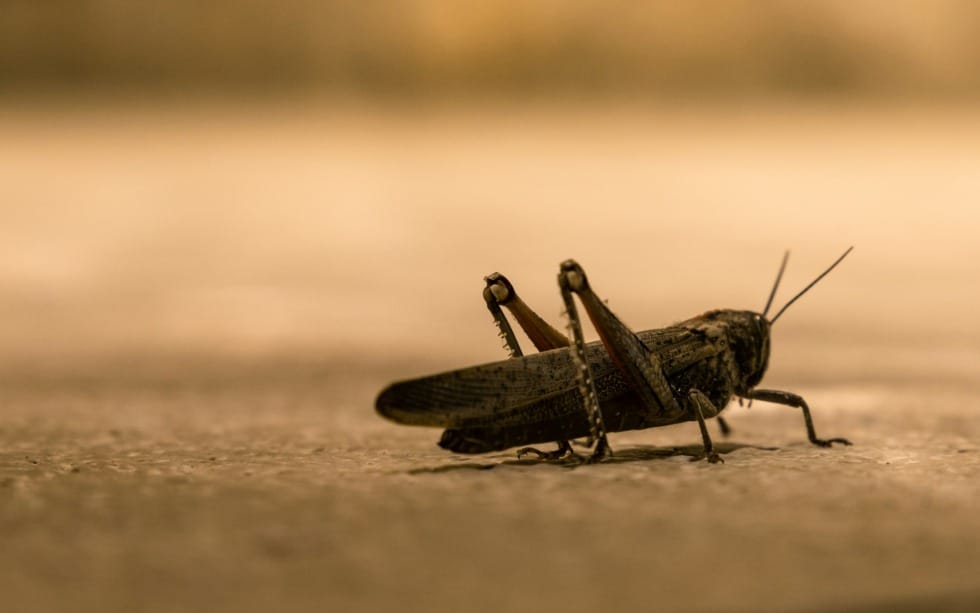How Can God Redeem the Years I've Wasted?
Have you spent years apart from God? Do you live with constant regret of what could have been? If so, the prophet Joel has some powerful words of encouragement.

Do you struggle with guilt over all the years you’ve wasted not following Christ?
If so, the book of Joel is for you. Joel’s name means “Yahweh is God.” He is a relatively unknown figure and is referenced only once in the New Testament. This book was likely written in the 8th or 9th century in the days of King Uzziah (792-740 B.C.) – the tenth king of the southern kingdom. You will recall that Israel was a divided nation at this time, separated into two kingdoms – the northern kingdom of Israel and the southern kingdom of Judah. Joel’s prophesies are directed to Judah and its capital, Jerusalem.
Assuming this is the case, Joel’s words came at a prosperous point in history. Patterson notes, “The era of the early eighth century B.C. was one of great expansion, militarily, administratively, commercially, and economically, a period the prosperity of which was second only to that of Solomon’s.” Joel is written mainly in poetry and uses language carefully and for effect,[1] and this book can be broken into two sections. Joel 1-2:17 outlines the devastation the locusts have brought on the land, and Joel 2:18-3:21 celebrates God’s restoration and goodness.
The theme of Joel is “Day of the Lord,” and it is used five out of the nineteen times this phrase is used in the Old Testament. It signifies something big is about to happen. Dave Jenkins notes, “When the Old Testament refers to The Day of the Lord, it has in mind a near and far fulfillment.” For example, Joel 1:15 talks about the day of reckoning that God’s people are about to face, whereas Joel 2:30-32 points to the divine judgments that will be encountered at the end of this age. Unfortunately, in the time of Joel, Israel turned their backs on God. They were divided and fell into idol worship. In a way, they had become the Egyptians they once were liberated from, and their day of reckoning was upon them.
Most commentators take the locusts as literal and not symbolic of a great army. Locusts are a special kind of grasshopper. While “there are hundreds of species of grasshoppers, only a small handful of those are what we consider locusts.”[2] Locusts typically live solitary lives in their grasshopper phase in unpredictable environments, such as the arid regions of the Horn of Africa.
When conditions are favorable with abundant rainfall and moisture, locusts undergo a dramatic transformation known as the "gregarious phase." During this phase, locusts change their physiology, behavior, and appearance. They become attracted to one another and form large, coordinated swarms that can travel long distances. This ability to change in response to environmental conditions helps them survive and thrive.
In Joel, the locusts come in different forms. They cut, they swarm, they hop, and they destroy. David Baker notes, “When [the locusts] hatch and swarm, they can be as dense as four to five thousand insects per square meter, and they strip all green foliage, destroying crops and trees. This then depletes the next season’s fodder for livestock as well as grain for the family larder. With no large-scale ability to stockpile supplies, such an event places nations in grave peril.” The locusts devastate in different ways. Notice the progression:
- Joel 1:5-7: Drunkards can no longer drink because the vines are destroyed.
- Joel 1:8-10: The fields are destroyed, and there is no grain.
- Joel 1:11-12: The farmers can now no longer eat.
Joel 2:25 points out that God sent the army, while Joel 2:20 says he is the one who will remove them. So why did God send them? He sent them because his chosen people had turned to cult worship. Like many of the Israelites in Egypt, God’s chosen people began to believe in the power of other gods apart from Yahweh. But as David Hubbard says, “[Joel] saw in the locust-plague God’s means of correcting, of purifying, the cult and, beyond that, of preparing the way for the full blessing of Yahweh on the people through the gift of his spirit, the defeat of his enemies, and the permanent prosperity of Judah and Jerusalem.”[3]
After outlining a bleak picture, Joel calls the people to repentance, and Joel 2:18 presents a shift. God is jealous for his people. He longs for an exclusive relationship that will not be rivaled with others. God is here to deliver. Notice his response. As in verse 12, it is gracious and kind. He extends an invitation to repent even before Israel has shown remorse. This is who God is. He is gracious, merciful, slow to anger, and abounding in steadfast love (2:13).
Then, Joel 2:25 offers these powerful words, “I will repay you for the years that the swarming locust ate, the young locust, the destroying locust, and the devouring locust—my great army that I sent against you.
If you’re like many, you have some wasted years the locusts have eaten—times when you’ve reaped the results of your sinful actions. But it’s here that it’s important to remember nothing on earth is wasted. In Joel, God’s promise of deliverance offered temporary relief, but it ultimately pointed to a greater day. At the end of the day, Joel 2:27 tells us what God is up to. He says, “You will know that I am present in Israel and that I am the Lord your God, and there is no other. My people will never again be put to shame.”
God brings or allows locusts into our lives to point us to the knowledge of him. This is the highest good in life, and anything less would pale in comparison. Also, there is good news.
With Christ’s ascension into Heaven, he promised to send a comforter – the Holy Spirit. In Acts 2:13-21, Peter speaks to a group of men in Judea who lived in Jerusalem (similar audience to Joel) and are concerned that the new apostles who are speaking in everyone’s language are drunk. But Peter points back to Joel’s words in Joel 2:28-29 where Joel says: 28 “After this I will pour out my Spirit on all humanity; then your sons and your daughters will prophesy, your old men will have dreams, and your young men will see visions. 29 I will even pour out my Spirit on the male and female slaves in those days.
He’s saying, “Guys, this is what was promised all along! Look at how faithful God is to fulfill his purposes in our lives! Right now, you and I can have the Holy Spirit at work in our lives.” Ultimately, if God fulfilled his promises to the people in Joel’s and Peter’s days, we can trust that he will be faithful in our day as well as the days to come. There will be a time when God wipes away the pain and heartbreak we see. On that day, we will see no locust moment in life was wasted because it was those same dry seasons that pushed us into the arms of Christ.
*Unless you specify otherwise, comments and questions you ask may be featured in upcoming podcast episodes.
[1] David Baker
[2] https://www.npr.org/sections/goatsandsoda/2020/06/14/876002404/locusts-are-a-plague-of-biblical-scope-in-2020-why-and-what-are-they-exactly
[3] Tyndale





